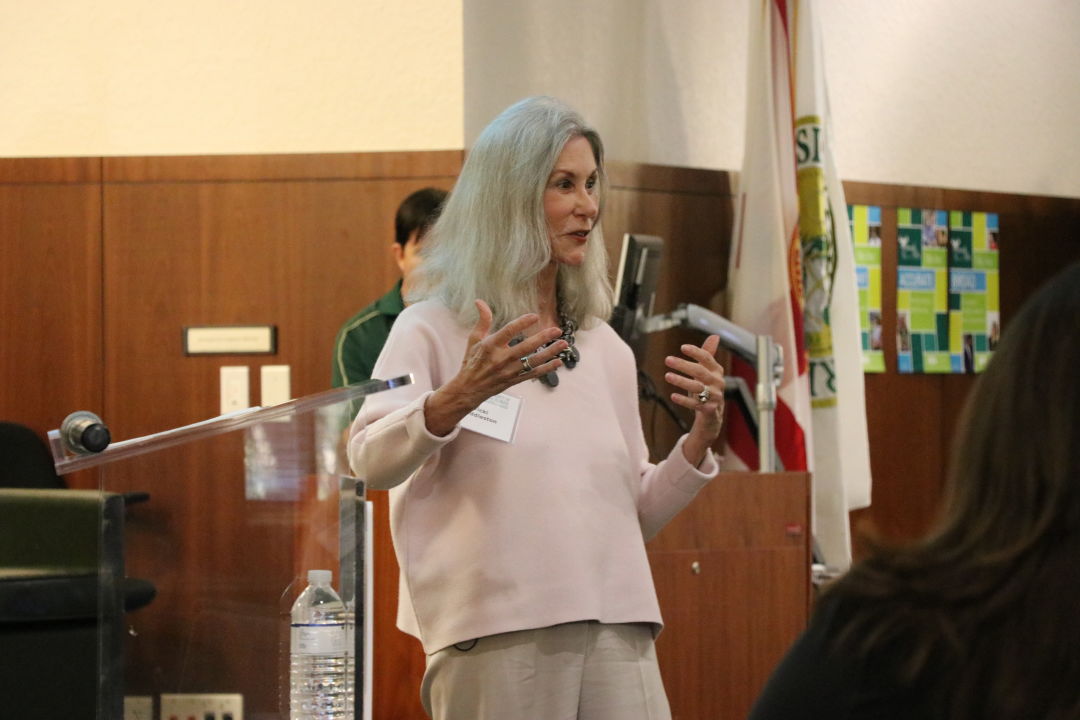Hurricanes, Havana and Caribbean Investment Opportunities

Image: Norm Dempsey
Political and natural storms dominated the discussion at the Feb. 22 day-long seminar, “Cuba and the Caribbean: What Now?” The seminar, hosted by Sarasota-based Cumberland Advisors, USF-Sarasota-Manatee, the Global Interdependence Center, the Federal Reserve Bank of Atlanta, Research One and USF World, brought together regional and national experts to discuss the complex web of Cuban-American relationships, economic and travel opportunities in Cuba and the effects of the hurricanes that battered the Caribbean last summer.
Keynote speaker Vicki Huddleston, whose diplomatic career included serving as director of U.S. Policy toward Cuba at the Department of State and chief of Diplomatic Mission in Havana, recalled meeting Castro, who first asked her if she was the spouse of an official (“I told him I was the director of Cuban affairs and he paused for a moment and said with a smile, “I thought I was”) and then offered his arm to walk her into dinner. She also described the battle over Elian Go

Vicki Huddleston
Image: Norm Dempsey
nzalez, the child who was rescued after his mother drowned while fleeing Cuba and became the focus of a tug-of-war between Miami’s Cuban exiles and Castro. Huddleston credits Gonzales with galvanizing Miami’s Republican Cuban voters, who showed their disapproval of Al Gore’s support for returning Gonzalez to Cuba by casting the decisive votes to make George W. Bush president.
Like other speakers at the seminar, Huddleston warned it is not in American interests to have an enemy 90 miles off our shore. America’s sanctions on Cuba have been worse than ineffective, she says; they have hurt the Cuban people and empowered government hardliners to reverse reforms and build relationships and business investments with other countries. “Engagement brings opportunities,” she stressed. The Trump administration’s reaction to the sonic attacks on diplomats in Cuba was to close the embassy; as a result, she says, “nobody is getting help with making investments there or doing visas. It hurts our ability to know what is going on and the Cuban government is pulling back, not issuing licenses for many of the businesses that had been allowed to form and operate.”
Collin Laverty, president of Cuba Educational Travel, noted that the excitement of the Cuban people when Obama lifted travel and business restrictions has been replaced by “uncertainty and pessimism” with the Trump administration’s reversal of that policy. Still, he said, many of Obama’s changes remain in place, and it’s best to take the long view, since “polls show Americans support more travel and interaction” and most Cuban people, in part because of increased access to the Internet and interaction with travelers, now view themselves as connected to the wider world.
The afternoon sessions on “Hurricanes and the Caribbean” presented a sobering look at the power and destruction of Irma and Maria, with speakers describing a devastated landscape and collapsed economy in Puerto Rico and other islands, and a huge exodus of working-age people to the United States. Bob Bunting the CEO of Waterstone Strategies, gave a dramatic presentation, using vivid satellite photos and animation to show the west coast of Florida could have suffered similar damage if Hurricane Irma had not been weakened by its passage over Cuba.
In partnership with USFSM and the Global Interdependence Center, Cumberland Advisors is planning another seminar on April 5. The second annual Financial Literacy Day, it will feature a number of nationally recognized economic and financial experts. Info: cumber.com/financial-literacy-day.



